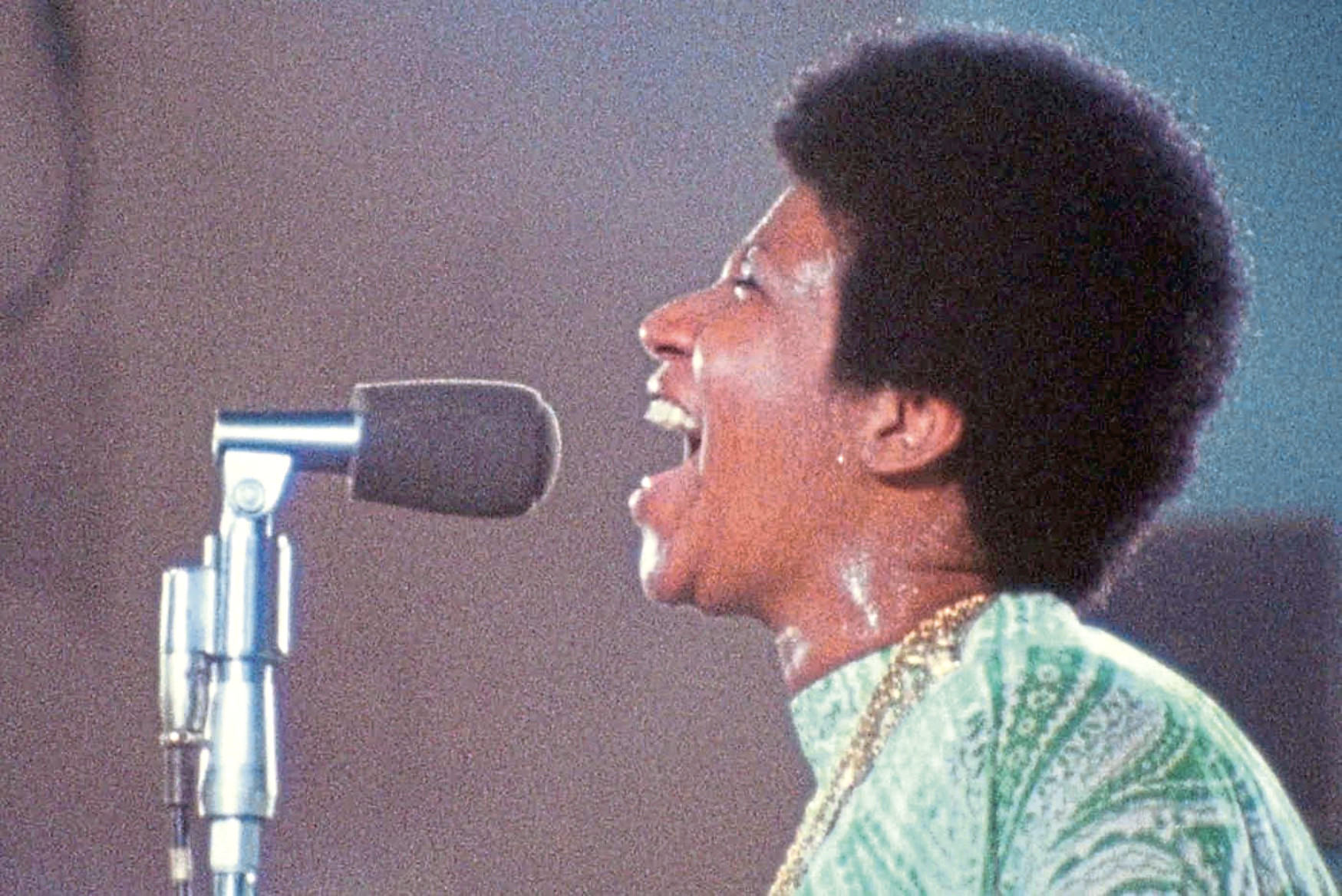@Filmhouse, Edinburgh from Fri 24 May
In 1972, Aretha Franklin recorded her best-selling gospel album, Amazing Grace, in the New Temple Missionary Baptist church in Watts, California (seven years earlier, the town was the setting for a riot which became known as the “Watts Rebellion“). Warner Bros. had sent along the director Sydney Pollack to document the recording, which took place over two evenings, in front of an appreciative, visibly moved crowd. Pollack had no experience in recording music in this fashion, and so neglected to use clapper-boards: meaning that the sound and images couldn’t possibly sync. There have been subsequent attempts to revive the project, all mired in legal and technical difficulties; and yet here it is, an honouring, thrilling portrait of one of the great musical artists at work.
The clumsy quality of the footage accentuates Franklin’s presence: even when she’s out of focus or something is blocking the view, it’s all worth it for those moments in which she’s framed clearly in the camera’s gaze. The voice is undeniable, and there’s something otherworldly in watching Franklin let it out. How could that sound be Earthly, let alone of the body? The coverage — which, charmingly, shows Pollack directing on the fly — mostly flits between Franklin and the choir, Franklin and Reverend James Cleveland (running proceedings), and Franklin and her audience, whose extempore reactions are a joy. At one moment, a camera picks up on Cleveland, a gracious and funny host, with a Howlin’ Wolf voice himself, listening to Franklin belt out the title song: he walks over from the piano to a nearby seat, takes his handkerchief into his hands, places his head into those same hands, and begins sobbing. And you hear, you feel, and you know why.
In fact, knowing is the reason this is all so moving. What Franklin in Amazing Grace shares with other great performances in concert movies (James Brown in 1964’s The T.A.M.I. Show, Talking Heads in 1984’s Stop Making Sense, Beyoncé in this year’s Homecoming) is the possession of unbelievable self-knowledge. It’s not enough for Franklin, on her own terms, to be only capable of this sort of greatness, she knows she needs to perform it and go beyond, and this challenge is written into the structure of each of her versions. Precious Lord, Take My Hand is a case in point: just when you think her voice has done everything it could possibly do, she goes further, finding a phrase or hitting a note you didn’t know was there. The control, the build-up, and final release are a rebuke even to superlatives.
What sets Amazing Grace apart from those aforementioned great concert movies is the nature of the performance — in these films, they’re stage-managed, their conceits rehearsed over and over again. Franklin and her choir are just going, and the looseness, the improvisational feeling, is electrifying. The film’s current form offers a chance to be in the room with Franklin’s voice, in all its pulse-quickening strength and sweetness. And that’s something to be thankful for.
